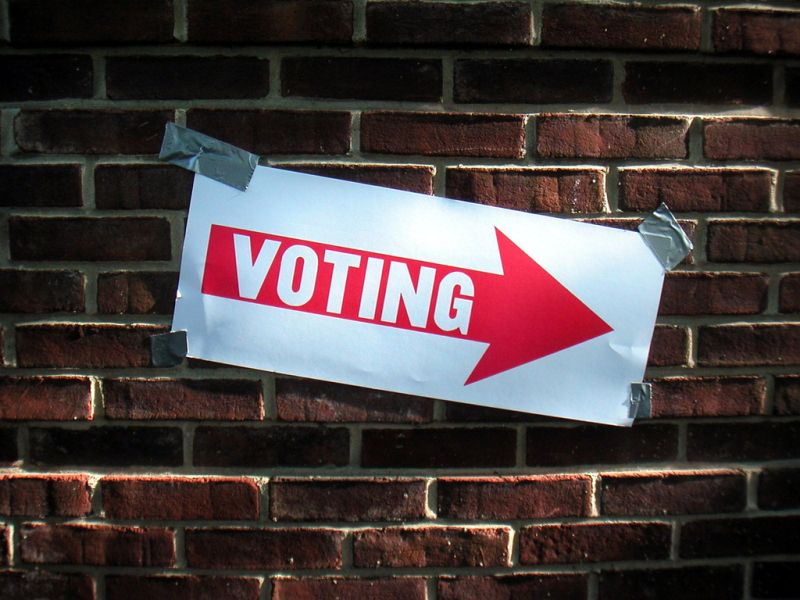In brief
News of the week

Burundi postpones parliamentary elections again
On Wednesday, it was officially announced in Burundi that the parliamentary elections scheduled for Friday would be postponed once more. The election commission was expected to announce a new date. Initially, they were supposed to be held in late May, but in view of massive protests, that date was unviable.
Last sunday, a summit of leaders of the East African Community (EAC) which comprises Rwanda, Kenya, Tanzania, Uganda and Burundi discussed the crisis in Burundi. South Africa's President Jacob Zuma and the chairperson of the AU Commission, Nkosazana Dlamini-Zuma, attended the meeting too. The summit called for a postponement of both the parliamentary elections and presidential elections scheduled for later this month by at least six weeks. The EAC summit stated that peace had to be restored for elections to become feasible.
Protest leader Pacifique Nininahazwe said on Sunday he was disappointed by the EAC summit. He was quoted by AFP as saying: "We are going to stage even bigger demonstrations than we have done so far in order to get Nkurunziza to leave office." Police fired on protesters who took to the streets of Burundi's capital Bujumbura on Tuesday, according to witnesses quoted by Reuters.
Nkurunziza said in April he would run for a third term as president. In protests following this announcement, more than 20 people have been killed. More than 90,000 Burundians have fled the country, the UN refugee agency UNHCR reports.
Sources: Reuters, AFP, BBC, Le Monde, Africa Report
Anti-ISIS alliance meets in Paris
Haider al-Abadi, Iraq’s prime minister, says that Isis, the Islamist militia, is stronger, better equipped and better organised than ever before. According to him, some 60 % of ISIS fighters are foreigners. Abadi shared his assessment at a conference of 24 nations in Paris. The event was hosted by the French government and the US administration with the goal of boosting the efforts of the anti-ISIS coalition.
According to the New York Times, however, the alliance “did not embrace any major changes and appeared set to continue on its current course”. The Iraqi delegation wanted partners to show more effort, whereas the US delegation stated that Iraq’s military was not sufficiently determined. The USA and France declared once more that they would not commit ground troops. Some alliance members are flying air raids against ISIS in Iraq, others are doing so in Syria. The air raids conform with international law because Iraq’s government has invited allies to become involved, and Syria’s official government has not raised objections.
Syria and Iran are not part of the anti-ISIS alliance. In Syria’s civil war, Iran is backing dictator Bashar al-Assad. In Iraq, however, Tehran supports Shia militias that contribute to fighting Isis on the ground.
Sources: NYT, taz
International fallout of FIFA scandal
Chuck Blazer, the former head of the soccer association of North and Central America and the Carribean, has admitted that bribes were paid in the context of awarding the 1998 World Cup to France and the 2010 World Cup to South Africa. Jack Warner, a former vice-president of FIFA, the world football association, says that he can prove that FIFA had its fingers in elections in his home country, Trinidad and Tobago. He announced he will deliver proof of links between FIFA and his country's two major parties in spite of fearing for his life.
Earlier, leaders of the French football association had stated that the World Cup in their country had been clean. Members of the South African government similarly insisted that there had not been any corruption. Sports Minister Fikile Mbalula declared graft allegations to be “an attack on our sovereignty”. According to the US administration, however, $ 10 million of black money ensured that FIFA decided to let South Africa host the event. Last weekend, an editorial in the South African newspaper Mail and Guardian stated: “South African football – and possibly even the South African government – has a damning case to answer.”
The US Department of Justice claims that international football is haunted by “rampant, systemic and deep-rooted” graft. On its behalf, several leading FIFA officials were arrested in Switzerland shortly before Sepp Blatter was re-elected as FIFA president at the end of May. He resigned on Tuesday, only four days after having been confirmed in office.
Brazilian legislators have started a corruption inquiry in the context of the scandal that is rocking FIFA. They want to find out whether wrongdoing contributed to Brazil hosting the Football World Cup last year. The congressional inquiry will be independent of police investigations into the same issues. Brazil’s Federal Police accuses Ricardo Teixeira, the former head of the country’s national football federation, of forging documents and manipulating bank accounts. He belonged to the committee that organised the World Cup, and was responsible for financial transactions worth about € 140 million.
Sources: FT, Repubblica, Mail and Guardian, Le Monde, WSJ
China and US quarrel over South China Sea
China’s aggressive claim of almost the entire South China Sea has deepened its tensions with Washington. At an Asia-Pacific security summit that was held in Singapore over the weekend, US Defence Secretary Ashton Carter said that “the pace and scope of land reclamation in the South China Sea” sharply raised “the risk of miscalculation or conflict” between China and other countries that also claim the same islands, reefs and atolls.
He urged China, which has lately built new artificial islands with deep water harbours and a three kilometre airstrip suitable for fighter jets, to bring its development to “an immediate and lasting halt”. Last month, a US spy aircraft flew over artificial islands made by China, sparking a diplomatic row. The US administration and several regional governments insist that such developments do not give China the right to control maritime and airspace.
At the Singapore meeting, China’s second-highest military officer Admiral Sun Jiunguo defended the projects as “justified, legitimate and reasonable” and “well within the scope of China’s sovereignty”. His country claims almost all of the South China Sea, where the Philippines, Vietnam, Malaysia, Brunei and Taiwan all have overlapping claims. In one disputed area, the Spratly islands, the US says China has created 2,000 acres of land.
Many in the US see China as engaged in a concerted strategic effort to seize control over the South China Sea as part of a larger attempt to push the US out of Asia and replace it as the dominant force in the region. The area is of huge importance because about one third of the world’s shipping transits through its waters and big oil and gas reserves are believed to lie in its seabed.
Sources: The Independent, Financial Times, The National Interest
Major retail companies join BMZ’s Textile Partnership
Several leading German retail companies have joined the Partnership for Sustainable Textiles. The alliance was started by the Federal Ministry for Economic Cooperation and Development (BMZ) in 2014 to improve labour and environmental standards in supply chains. Discounters such as Aldi, Lidl and Kik, which are known for particularly cheap merchandise, are among the new members. Otto, C&A, Rewe and other big corporate players have joined as well.
Gerd Müller, the German development minister, welcomed the new development, considering it a “strong signal” ahead of the G7 summit in Bavaria. Improving standards in the textiles and garment sector is one of Müller`s top priorities (see http://www.dandc.eu/en/article/gerd-mueller-federal-minister-economic-cooperation-and-development-wants-improve-labour).
Sources: FR, BMZ
These items were compiled by Hans Dembowski and Katja Dombrowski on the basis of international media coverage.











